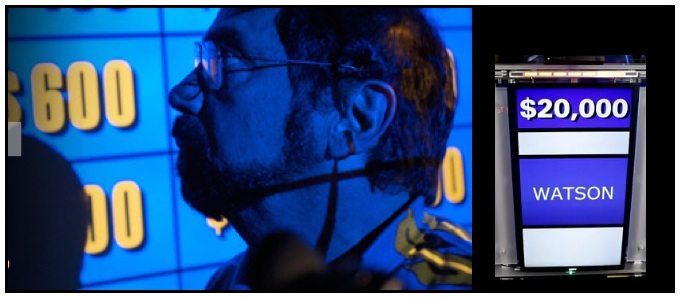Final Jeopardy: A machine that questions what it means to be human

The battle over intelligence is popular culture’s longest running show. Are computers smarter than people? Is the brain a second-rate technology? Can machines think? Will they become sentient and take over? Can they beat a human on Jeopardy!?
The correct answer is: What is “Watson”?
Next month, an IBM computing system will compete on Jeopardy! against the quiz show’s two most successful contestants. Watson, named after IBM founder Thomas J. Watson (“I think there is a world market for maybe five computers”) was developed to rival a human’s ability to answer questions posed in natural language with speed, accuracy and confidence.
Beyond entertainment value, Jeopardy! provides a technological challenge that is uniquely human: the clues involve analyzing subtle meaning, irony, riddles, and other complexities in which humans excel and computers traditionally do not.
IBM says the technology can be adapted to solve many problems and drive progress in various fields. It says the computer has the ability to sift through vast amounts of data and return precise answers, ranking its confidence in its answers. But can it outsmart Ken Jennings, who won 74 games in a row?
IBM changed the way we looked at computers in 1997 with the chess-playing Deep Blue. It defeated chess master Gary Kasparov, who accused IBM of cheating. Look for IBM to win this time, too — barely, indecisively and controversially. And mark the forthcoming Jeopardy! match as an iconic moment for artificial intelligence in world many believe is become less human.
— Curated for the Museum of Next by Dale Peskin
More..
Watch.
Follow.
Latest coverage.
Discuss, include the hashtag #ibmwatson in a tweet.



